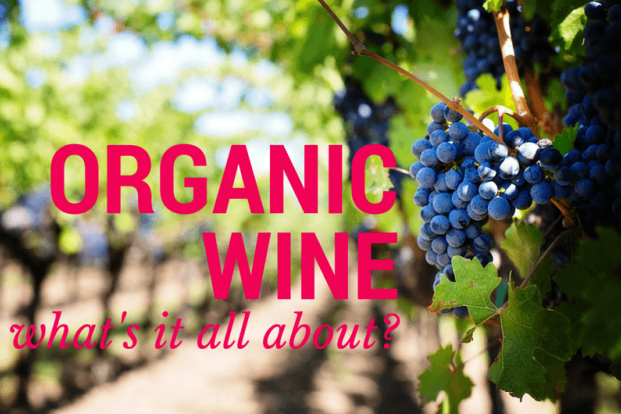Organic Wine - What Does It All Mean?

You may have noticed the word organic has started appearing in conjunction with the word wine with rather more frequency over the recent years. Considering that our supermarkets are full of organic products, it’s no surprise that this trend has spilled over into the world of the fermented grape as well. Yet this is one word which has a mind-boggling array of definitions, so, when we talk about organic wine, what does it actually mean?
At its base, it’s all about the grapes and how they are grown. Organic Wine is essentially grapes free to blossom away from chemical fertilizers, pesticides and other such unnatural things. It all sounds so wonderfully healthy and good for the environment, and when put so simply, you have to ask yourself why all winemakers don’t subscribe to organic winemaking practices?
As with most things in life, it’s not so cut and dried. There are a plethora of pests and diseases that can affect vines and vineyards, certain grape varieties that are more sensitive and fussier than others, and some wine regions which have delicate climates; all factors which can make practicing organic viticulture difficult.
Yet, whilst it’s universally acknowledged that organic wine = organically grown grapes, it’s once those grapes leave the vineyard and enter the winery that the real debate begins. Why? Because wine needs Sulphur Dioxide (SO2). And Sulphur Dioxide is, by definition, a chemical compound.

Sulpher Dioxide has a plethora of uses in the winery. It’s the one-stop shop, an antiseptic that kills yeasts and bacteria, an antioxidant and a preservative all rolled into one. The quality and freshness of a particular wine is thanks, in large part, to this non-organic additive. After all, when we open a bottle of, say New Zealand Sauvignon Blanc, we expect it to taste according to the flavour profile we associate that particular wine with. Not unclean, oxidized or slightly fizzy (we’re not popping a bottle of bubbles here). Sulphur Dioxide really is the hardest worker in the wine world.
The thing is, nothing natural comes close to doing the work that Sulphur Dioxide does and herein lies the great organic paradox. It’s more than likely that your organic wine has in fact undergone chemical treatment in the winery.
The Americans have addressed the quandry by issuing a definition of organic wine as anything with a Sulphur Dioxide level of less than 20 parts per million. The Europeans have a different view, and define organic (often called bio) as made from organically grown grapes, admitting the potential presence of any level of Sulphur Dioxide.
You may, however, be drinking more organic wine that you think. France has the highest proportion of organic vineyards in the world, and many more which practice organic yet are not officially certified due to the cost and bureaucracy involved.

The last question to ask is if there are any wines made without the addition of Sulphur Dioxide? The answer is “yes, but….” Most wines, whether organic or natural (which takes organic to another level), include at least a trace of Sulphur Dioxide. If anything, it helps the wine age, and, when you’ve gone to all the trouble and care to grow your grapes organically, you would want your wine to have the potential to hang around for a while, wouldn’t you?
Bottom photocredit Verita Wikimedia Commons
Chrissie McClatchie is an Australian freelance writer and wine specialist who has been living in France since 2008. You can follow her on Twitter @RivieraGrape as she explores the wines of the French Riviera and Italy's Liguria.

Leave a comment
This site is protected by hCaptcha and the hCaptcha Privacy Policy and Terms of Service apply.